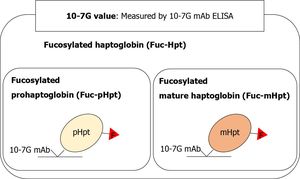The year 2025 presents itself as a pivotal moment for various markets, particularly those hinged on urban transformation, energy trends, and the dynamics of the real estate sector. With significant shifts expected, stakeholders ranging from investors to everyday consumers are keeping their eyes peeled for developments driven by sustainability and innovative technology.
According to Massimo Leonori, president of Cna Infissi Macerata, there's been increasing concern over the dwindling interest among youth to engage earnestly with professions, which he notes is reflected in the kinds of jobs they prefer. His observations highlight the broader socio-economic trends affecting workforce readiness and innovation as we advance toward 2025.
Leonori explains, "The future of businesses and the entire country hinges on renewed recognition of the value of technical and artisanal work, so the new generations can discover not only concrete job opportunities but also perspectives for growth and personal fulfillment." He asserts the importance of training young individuals to meet the workforce's actual needs, reinforcing the need for balanced prioritization of both academic and technical education.
On the global front, the energy storage sector is rapidly transforming due to the merging of various factors including increased demand for large loads, rising protectionist policies, and leapfrogging technological developments. Analysts urge everyone involved to stay attuned to these changes, which promise to redefine energy consumption and management.
Meanwhile, urban areas like Portugal’s cities, Lisbon and Porto, are at the forefront of ecological transformation, emphasizing the necessity for sustainability. The push for efficient energy use and carbon neutrality aligns with the EU's commitment to reaching carbon neutrality by 2050. This commitment is resulting in new developments centering on high-efficiency projects such as solar panels and green roofs. Eco-conscious properties are becoming more prominent, attracting young professionals and expatriates who now view sustainable living not just as a lifestyle choice, but as a necessity.
The growth of internal regions like Braga, Évora, and Viseu offers new opportunities for investment outside major urban centers. These areas are poised for development attractiveness due to their cost-effectiveness and rich historical contexts. Although coastal towns like Cascais remain enticing for luxury real estate, there is a demonstrable migration toward these serene inland locales where modern comforts meet traditional charm.
The advent of remote work has also transformed the picture for urban housing, with cities such as Coimbra and Faro becoming increasingly appealing to digital nomads. These cities offer co-living spaces and modern co-working environments perfectly suited for professionals seeking work-life balance. Lisbon boasts flexible workspaces appealing to international communities, catering to their diverse needs.
The demand for smarter homes is not left behind as the Portuguese real estate market adapts to modern expectations. Smart living technologies, enabling climate control and advanced security systems, have quickly become prerequisites for many potential buyers. Lisbon, recognized as a technological hub, leads the charge, providing state-of-the-art tech integration even dearer properties, especially those located within Cascais, mirroring global trends toward tech-savvy living environments.
Tourism-related markets are thriving as Portugal stands out as one of the leading destinations globally. The increasing tourism influx continues to raise demands for short-term rental properties, particularly within vibrant tourist spots like Algarve and Tróia. Investors will certainly find lucrative opportunities here, especially with properties placed smartly within Lisbon's cultural and scenic locales along the river.
The Portuguese real estate market forecast for 2025 indicates diversity and dynamism filled with potential opportunities. Whether interested parties lean toward eco-friendly urban apartments, high-tech homes, or tranquil rural retreats, options abound. Success will require staying informed and collaborating with local experts to grasp the nuances of Portuguese real estate market developments.
Understanding these trends is central for making informed investment decisions and maximizing returns, ensuring market participants can seamlessly navigate the promising yet complex future of real estate and sustainable living.



